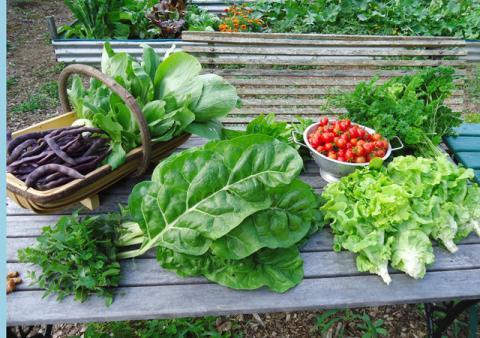
Reconnect to Your Roots: 3 Mental and Physical Benefits of Home Grown Food (+ Tips for Apartment Dwellers)
For everyone who does not have a naturally green thumb (myself included), growing and caring for any sort of plant or garden can be a particularly unnerving task. After caring for a plant for a few weeks or a month, it’s always disheartening to see it slowly start to wither away. This is enough to make anyone want to give up and just buy that plastic plant from the supermarket. But whether you’ve killed a hundred plants or have a lush green oasis in your backyard, I would like to offer an idea that we probably all know, but maybe haven’t thought about in-depth. Growing plants, specifically food plants, can leave lasting positive effects on our mental health, and therefore our physical health as well.
- Gardening requires attention. Most of us can’t plant something and then forget about it until it magically blooms on a sunny Sunday morning while we’re drinking our coffee. Caring for plants requires attention and troubleshooting. Not surprisingly, this is quite similar to our mental and physical health. When we put in the effort and attention required to grow something, it reminds us to slow down and pay attention to ourselves as well. See how giving that herb some water made it perk right up again? Such a simple action can have the same effect on us.
- Gardening requires intuition. Because plants can’t speak to us, when we grow our own we have to be aware of how our plants are doing (what works for them, what doesn’t work for them) on a very intuitive level. Often, it’s hard to bring a plant back after a certain point, so we have to be aware of things right when they start to change, and we have to know what to change. Again, this is familiar to our own health. If we can learn to cultivate this intuition when we garden, we can learn to do it for ourselves too.
- Gardening requires slowing down. So far I’ve spoken about the benefits of growing. There are also benefits of harvesting, which is why this post specifically highlights food plants. After all of this care we’ve given to our plant, we don’t want to chomp down on it quickly and make it disappear. We’ve seen it grow, we’ve helped it along the way, we’ve nourished it and now it’s time to let it nourish us. Feeling the same sunlight that has helped our tomato plant grow and feeling the coolness of the water that we’ve given to the strawberries connects us to our plants in an intimate way that we don’t have with store-bought produce, and so we should eat it differently as well. Growing our own food helps us to slow down and savor our meals, really tasting all the work and the energy that brought the food to our plate.
Tips for Apartment Dwellers
All that being said, if you live in an apartment it’s not always possible to grow entire meals in a garden. You can still benefit, however, by growing smaller plants that are easily incorporated into your meals. My personal favorite is to grow herbs on a windowsill like peppermint, basil, and tarragon. These are all strong herbs, and are a great addition to salads or cooked meals and will remind you that you helped to create these bright flavors in your food. Other ideas are to shop at your local farmers’ market and speak with the people who grew your food, or to look around and see if there might be a community garden you can join. Whatever the case, even when done in the smallest amounts, growing our food can help us to slow down and reconnect with our roots.
Photo Credit: "Vegetables" by Helle Jorgensen is licensed under CC BY 2.0
